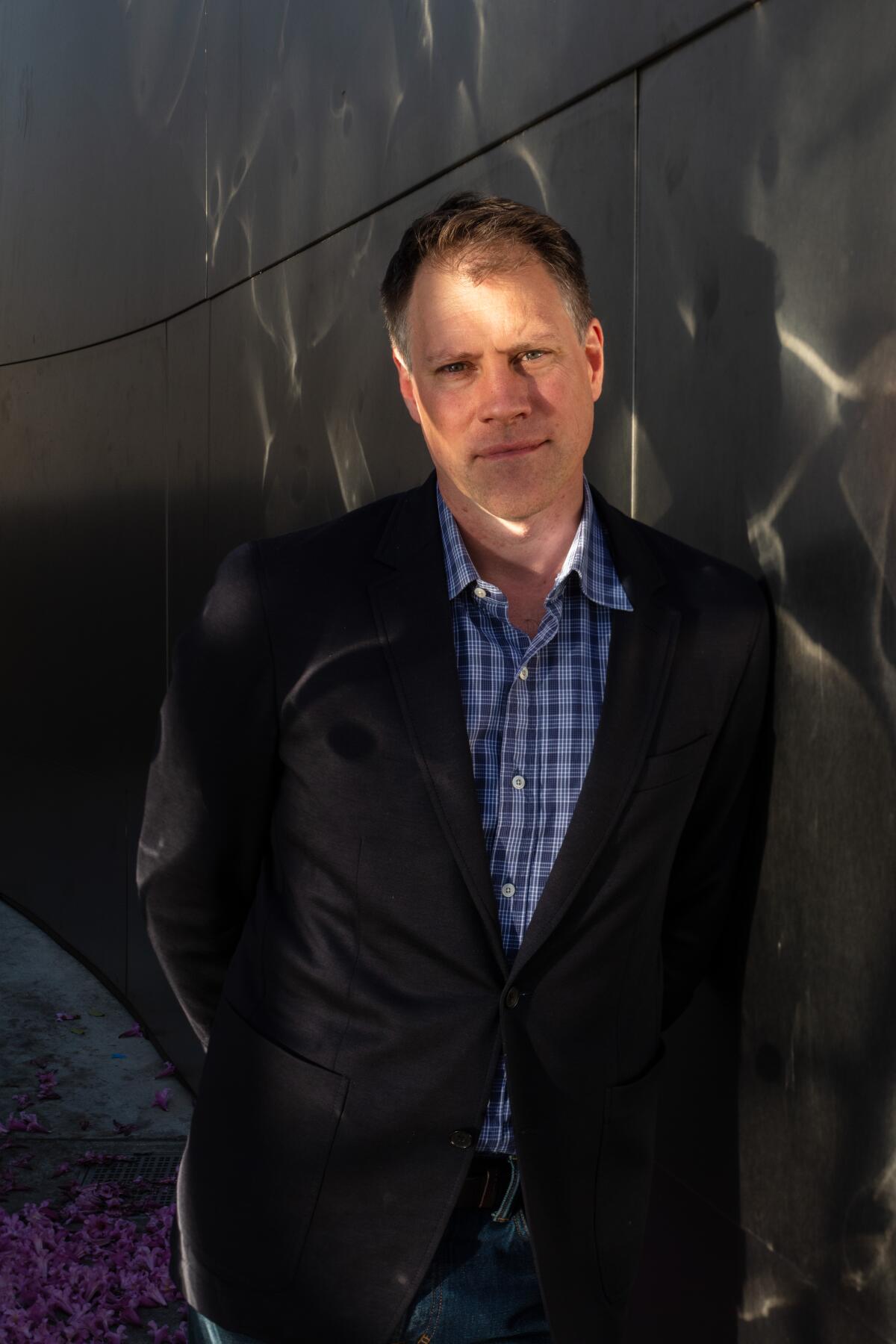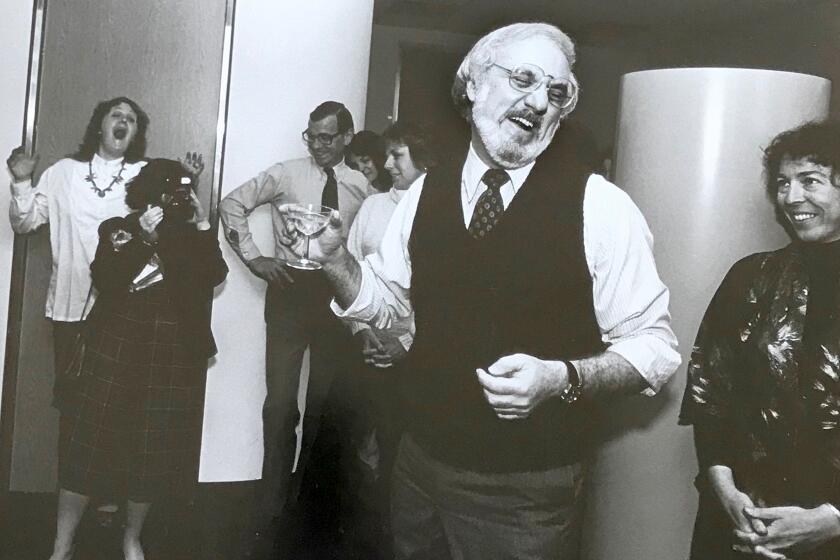L.A. Phil names a longtime insider, Chad Smith, as its new CEO

- Share via
The Los Angeles Philharmonic announced Tuesday its new chief executive is Chad Smith, formerly the orchestra’s chief operating officer. He takes his new post immediately.
“The L.A. Phil has been my creative home for the last 17 years and I am honored to be stepping into this role,” Smith said in the announcement, citing the orchestra’s music and artistic director, Gustavo Dudamel. “Supporting the expansive vision of Gustavo and his deeply held commitment to serving the whole of the L.A. community has never been more important, and I continue to strive to support that work.”
Smith, 48, a native of Gettysburg, Penn., studied European history at Tufts University and earned bachelor’s and master’s degrees in vocal performance from the New England Conservatory. He joined the L.A. Phil in 2002 but then left for a stint at the New York Philharmonic. In 2006 he returned to the L.A. Phil as vice president of artistic planning, and in 2015 he was named COO.
Dudamel called Smith “an exceptional colleague, partner and friend.”
“We share the same vision of excellence for the future of our institution, and I have complete faith that he will help me deliver on our immense dreams and responsibilities to the next generation — artistically, educationally and musically.”
Love him or hate him, the L.A. Times’ feared and funny Pulitzer-winning music critic Martin Bernheimer was a law unto himself for three decades.
L.A. Phil board Chairman Thomas L. Beckmen said Smith had done “years of brilliant work in advancing the L.A. Phil in every aspect of its mission, from planning and commissioning our extraordinary presentations of new music, to heightening the orchestra’s profile at the Hollywood Bowl, to overseeing our crucial educational programs and helping to launch YOLA.”
Smith’s rise to CEO marks the second time the organization has named a leader in less than two years. Smith replaces Simon Woods, a London native who came to the orchestra in January 2018 from the Seattle Symphony. Woods resigned unexpectedly last month, leaving many in the arts world shocked.
Woods said his “hopes and aspirations lie elsewhere.” The L.A. Phil declined to give any more information. Following Woods’ departure, then-board Chairman Jay Rasulo and Beckmen assumed interim leadership of the orchestra.
Woods and now Smith follow Deborah Borda, who served as president and chief executive for 17 years before departing for New York. Borda left behind a financially secure and internationally renowned orchestra, having grown the L.A. Phil budget from $46 million in 1999 to $125 million when Woods arrived.
“It’s a superb choice,” Borda said of Smith’s appointment. “He’s absolutely steeped in the culture of the Los Angeles Philharmonic and critically, he’s deeply rooted in the art. Another important point is his creative gifts — he brings all the tools and knowledge to dynamically manage the broader institution.”
Smith had already been named the next artistic director of the Ojai Music Festival, replacing Thomas Morris. It’s a job that Morris called “a considerable time commitment, a major job.” Whether Smith will run the Ojai festival while leading the L.A. Phil — which doesn’t take summers off and instead tours internationally and performs at the Hollywood Bowl — remains to be seen. Smith and the L.A. Phil were not available for further comment Tuesday.
“The most important thing is: He brings vision,” Morris said of Smith.
This fall’s classical music highlights include Esa-Pekka Salonen, “Porgy and Bess” and the L.A. Phil’s birthday gala.
Morris, former chief executive of the Boston Symphony Orchestra and Cleveland Orchestra, said Smith has been a “visionary” artistic leader at the L.A. Phil, and elevating him to the top job was the right move.
“These organizations have to lead from an artist vision, that’s the way of the future,” Morris said. “I’m hoping it will make the L.A. Phil even bolder.”
Jesse Rosen, president of the League of American Orchestras, called Smith “one of the great artistic planners and leaders in our field.”
“The creativity he’s brought to our art form and the way it’s presented, and, in recent years, bringing in new and under-represented voices into our community — he’s done incredibly important work, not just at the L.A. Philharmonic but across our field,” Rosen said.
The challenge for the L.A. Phil now, Rosen said, is to take advantage of its good fortune.
“L.A. is at the top of its game. The L.A. Phil has a lot of momentum going and the opportunity here — and the challenge — is to leverage its strength so it can go even further and deeper in advancing the art form and the relationship of the orchestra to the community.”
Borda echoed that sentiment: “The challenge is simply to keep on building,” she said.
Optimism for the L.A. Phil’s future extended to artists as well.
“I’ve loved having conversations with Chad, I find him so thoughtful about so many different aspects of art,” said composer Ellen Reid, whose L.A. Phil commission “Oscillations: One Hundred Years and Forever” premiered last year. “He’s so knowledgeable in so many ways — about novels and film and really anything, it’s pretty flooring. I think he’ll bring all of that to his new work. I’m excited for this new chapter.”
More to Read
The biggest entertainment stories
Get our big stories about Hollywood, film, television, music, arts, culture and more right in your inbox as soon as they publish.
You may occasionally receive promotional content from the Los Angeles Times.












